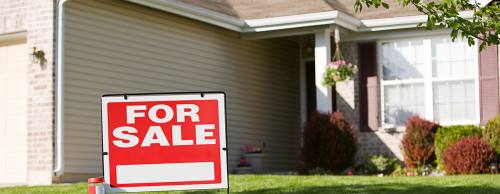Some Texas lawmakers are prioritizing taxpayer relief this legislative session, which began in January, but some local government officials are worried about what it could mean for their budgets.
The main attempt to reform the property tax system this session comes from Sen. Paul Bettencourt, R-Houston. Bettencourt filed Senate Bill 2, the Texas Property Tax Reform and Relief Act, on Nov. 29. It was given top priority by Lt. Gov. Dan Patrick.
 “Property taxes are driving people out of their homes and hampering business expansion and growth. It’s time for this to stop,” Patrick said.
“Property taxes are driving people out of their homes and hampering business expansion and growth. It’s time for this to stop,” Patrick said.
Among other goals, SB 2 seeks to lower the property tax revenue cap for cities and counties from an 8 percent increase over the previous year to a 4 percent increase. If a city or county were to exceed the revenue cap, a rollback election would be triggered giving voters the chance to approve or reject the new tax rate.
During a press conference Feb. 20, Montgomery County Precinct 3 Commissioner James Noack said the commissioners would need to be more responsible with money the county already has if SB 2 is approved this session.
“If we need more revenue based on the demand from the citizens, then they are going to understand that a tax rate increase is necessary,” Noack said. “It’s time to stop these arbitrary increases in the appraised values [of homes] to generate millions of dollars for Montgomery County alone.”
Officials with the Texas Municipal League—a nonprofit that advocates for legislative issues on behalf of Texas cities—describe the proposed rollback rate reduction as an “assault on public safety, economic development and transportation.” Meanwhile, officials with cities and counties across the state, including Montgomery County, have expressed concerns about how SB 2 could restrict future budgets.
The call for reform
Bettencourt, who serves as chairman of the Senate Select Committee on Property Tax Reform & Relief, hosted town hall meetings across the state in 2016.
“Whether it was homeowners testifying that they are unable to keep up with their property tax bills, small-business owners seeing their hard-earned profits go out the window, or big businesses testifying that they are locating new plants and taking jobs out of Texas due to high property taxes, they are all saying that property taxes are rising too fast,” Bettencourt said.
The appraisal system in Montgomery County is designed to allocate the tax burden fairly among all owners of taxable property, said Tony Belinoski, a deputy chief appraiser for the Montgomery County Appraisal District.
“We appraise property according to the laws set forth in the Texas property tax code using mass appraisal,” Belinoski said. “We break properties down into market areas and based on their individual characteristics. We then use similar properties and—collecting sales information—we make adjustments to those properties.”
Critics claim property appraisal systems produce assessed values that often do not correlate with what is actually happening in the market. The state tax code requires appraisal districts to adopt a written reappraisal plan every two years to make sure appraisals accurately reflect changes in the real estate market.
In Montgomery County, average assessed values increased by 12.5 percent between 2015 and 2016, according to MCAD.
In addition to SB 2, several other bills related to property tax relief have been filed by lawmakers this session. Rep. Cecil Bell, R-Magnolia, filed House Bill 167, which would limit appraisal increases to 5 percent of the appraised value of the property for the previous year. Rep. Dwayne Bohac, R-Houston, filed HB 1473, which would exempt homeowners age 80 and older from property taxes entirely if they have owned their homes for at least 10 years.
Some legislation filed has been more extreme. Rep. Valerie Swanson, R-Tomball, filed HB 1050, which would abolish property taxes entirely by Jan. 1, 2022.
Changes if SB 2 is passed
If passed, SB 2 would pressure a taxing entity to lower its tax rate to compensate for increases in assessed property values, Bettencourt said. As a result, the amount a homeowner’s property tax bill could go up each year would be limited.
Under existing rules, citizens must petition to bring about a rollback election in which voters can decide to reject a proposed tax rate. Under SB 2, the election would be triggered automatically whenever a 4 percent increase in property tax revenue from the previous year is reached or passed. The bill would affect cities and counties but not municipal utility districts, emergency services districts or school districts.
The Woodlands Township board of directors has not considered or taken a position on SB 2 to limit property tax rates or levies, said Don Norrell, president and general manager of The Woodlands Township.
The township, as a special purpose district, is subject to the provisions of the roll back rate, Norrell said. However, since the township has reduced its property tax rate in recent years, SB 2’s caps would not impose on the budget.
“The township would not have seen any significant financial impact over the past four budget cycles with the proposed 4 percent limit on the property tax rollback rate as provided in Senate Bill 2,” Norrell said.
Bettencourt said it is difficult to project how much the average homeowner would save under SB 2, but he said the savings would add up each year to produce tangible relief over time.
Patrick O’Connor, president and owner of Houston-based property tax consulting business O’Connor & Associates, said the bill would have the greatest effect in cities and counties with high growth.
“It would definitely save homeowners money in years where property values go [up] quickly,” O’Connor said. “And we’ve seen a number of years in Harris County where appraisals have risen by 10 percent.”
O’Connor said in a best-case scenario with a 10 percent increase in appraised value year over year on a $280,000 home and a total combined property tax rate of $2.70 per $100 valuation—including all taxing entities—the bill could save homeowners as much as $454 that year if residents were to vote down the tax increase.
In addition to reducing the rollback rate, SB 2 would also install a series of appraisal reforms, including the creation of oversight boards, raising small-business exemptions and standardizing the date for property owners to protest their appraisals, according to the legislation.
Budget concerns
Montgomery County officials offered various perspectives on the effect of the property tax rollback. Judge Craig Doyal said the county is evaluating ways to provide some property tax relief at the local level, but striking a balance is difficult because the county does not levy a sales tax. On Feb. 13, county commissioners approved a 10 percent homestead exemption for all homeowners.
“We want to give people some relief but at the same time not put ourselves in a position where we cripple the county operations and we have to cut back on law enforcement, and we are way behind on road construction,” he said. “It is a tough balance.”
In Montgomery County—where 83 percent of the county is unincorporated—property tax revenue will be even more crucial to managing a rapidly growing population, Doyal said.
Total property tax revenue brought in by Montgomery County has increased from $175.3 million in 2013 to $186.6 million in 2014 and $203.2 million in 2015, increases of 6.45 and 8.90 percent, respectively.
By approving a 10 percent optional homestead exemption for all homeowners, the county will lose about $13 million in annual revenue, Tax Assessor-Collector Tammy McRae said. However, Montgomery County expects to generate approximately $12.8 million in additional revenue this year over last year.
The exemption could result in an annual savings of $125.40 for homes valued at $268,685—the average value in Montgomery County, she said.
Doyal said he is also encouraging local municipalities to reduce their tax rates.
Noack said if a local governing body needs more money each year, it should come from increasing the actual tax rate because property tax increases are too high.
“I believe that the property tax rates across the state are virtually meaningless,” Noack said. “What I mean by that is our appraised values are going up so high that, [with] the property tax rate, we’re generating more income every single year without having to do anything other than make sure your home increases in value or your business.”
In the City of Shenandoah, average home values were $373,257 in 2016, which is an increase from $304,642 in 2014. Shenandoah Mayor Ritch Wheeler said there are pros and cons that go along with SB 2.
“I am almost always in favor of any legislation that increases transparency, as well as the voice of the people,” Wheeler said. “The challenge with legislation like Senate Bill 2 is how to accomplish the goal without losing important local services.”
Property taxes help sustain local government services, such as police, fire, infrastructure and transportation, Wheeler said.
“I think most people understand the need for these tax dollars, as long as there is ample transparency to see that they are being spent wisely,” he said.
Oak Ridge North—a city that has reduced tax rates for its citizens for the last six years—is not expecting to be affected by SB 2 at this time, City Manager Vicky Rudy said.
“We believe that the state should focus on a real fix for school finance,” Rudy said. “That is where property owners are hit the hardest and why we have a statewide issue with property taxes.”
In 2016, the average property value for Oak Ridge North residents was $261,000—up from $250,000 in 2014.
Rudy said she believes tax rates should be determined at a local level, rather than by the state Legislature. Additionally, Rudy said she believes the other issue is in appraisals as a whole. SB 2 only addresses tax caps.
“Every city is different,” Rudy said. “That is why a local decision is in the best interest of all. There is no real ‘statewide’ fix other than school finance.”





